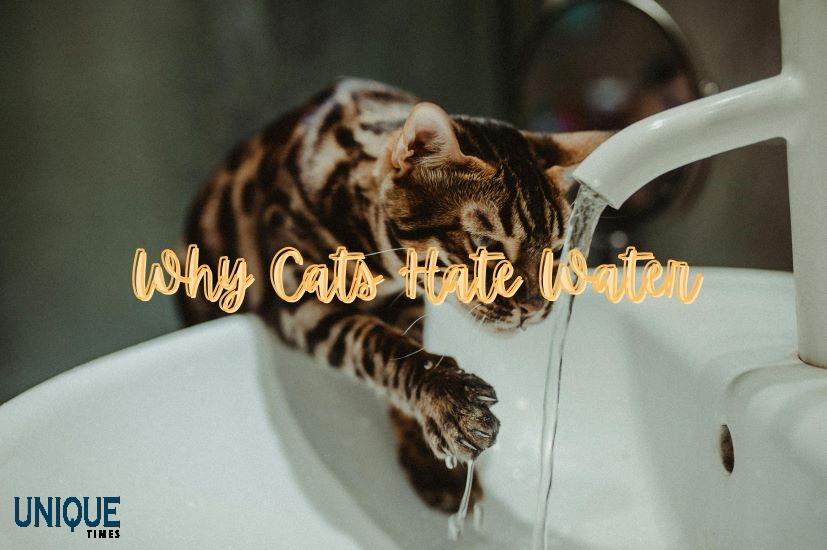
Cats, with their graceful agility and meticulous grooming habits, often appear to be masters of self-care. However, there’s one aspect of personal hygiene that many felines seem to avoid at all costs: water. From the infamous “cat-in-the-bathtub” scenario to the comical leap away from a mere droplet, the aversion of cats to water has puzzled and amused pet owners for centuries. In this blog post, we’ll delve into the intriguing reasons behind why cats hate water, unraveling the feline mystery one splash at a time.
1. Natural Instincts
One of the primary reasons why cats dislike water can be traced back to their wild ancestors. Unlike their canine counterparts, who were domesticated from wolves, cats are descended from desert-dwelling ancestors who had little exposure to bodies of water. As a result, cats never developed a natural affinity for swimming or being submerged in water, as it was not essential for their survival in their natural habitat.
2. Sensitivity to Temperature
Cats are highly sensitive to changes in temperature, and cold water can be especially uncomfortable for them. Unlike dogs, whose fur and skin provide some insulation against the cold, cats have thinner fur and less body fat, making them more susceptible to feeling chilly when wet. This sensitivity to temperature may contribute to their aversion to water, as they instinctively avoid situations that could cause discomfort.
3. Disruption of Grooming Routine
Cats are meticulous groomers, spending a significant portion of their waking hours grooming themselves to maintain cleanliness and regulate body temperature. Water can disrupt this grooming routine, causing their fur to become matted and waterlogged, which can be uncomfortable and distressing for them. Additionally, wet fur may also interfere with a cat’s ability to retain body heat, further exacerbating their discomfort.
4. Loss of Control
Cats are creatures that value control and autonomy, and being submerged in water can make them feel vulnerable and out of control. Unlike dogs, who may enjoy splashing around in water for play or cooling off, cats prefer to maintain their independence and avoid situations where they feel trapped or constrained. The sensation of being wet and unable to move freely may trigger feelings of anxiety or distress in cats.
5. Lack of Exposure
Finally, some experts believe that a cat’s aversion to water may simply be a result of lack of exposure or negative experiences with water during kittenhood. If a cat has never been properly introduced to water in a positive and gradual manner, they may develop a fear or aversion to it later in life. Conversely, cats that are exposed to water from a young age and have positive experiences with it may be more accepting of water-related activities.
Conclusion
In conclusion, the aversion of cats to water is a complex interplay of natural instincts, sensory sensitivities, grooming habits, and past experiences. While some cats may tolerate water to varying degrees, many exhibit a clear dislike or even fear of it. As responsible pet owners, it’s important to respect our feline friends’ preferences and avoid forcing them into situations that cause them distress. So the next time you find yourself coaxing your cat into a bath, remember that their aversion to water is deeply ingrained and rooted in their evolutionary history as desert-dwelling creatures.
Picture Courtesy: Google/images are subject to copyright








